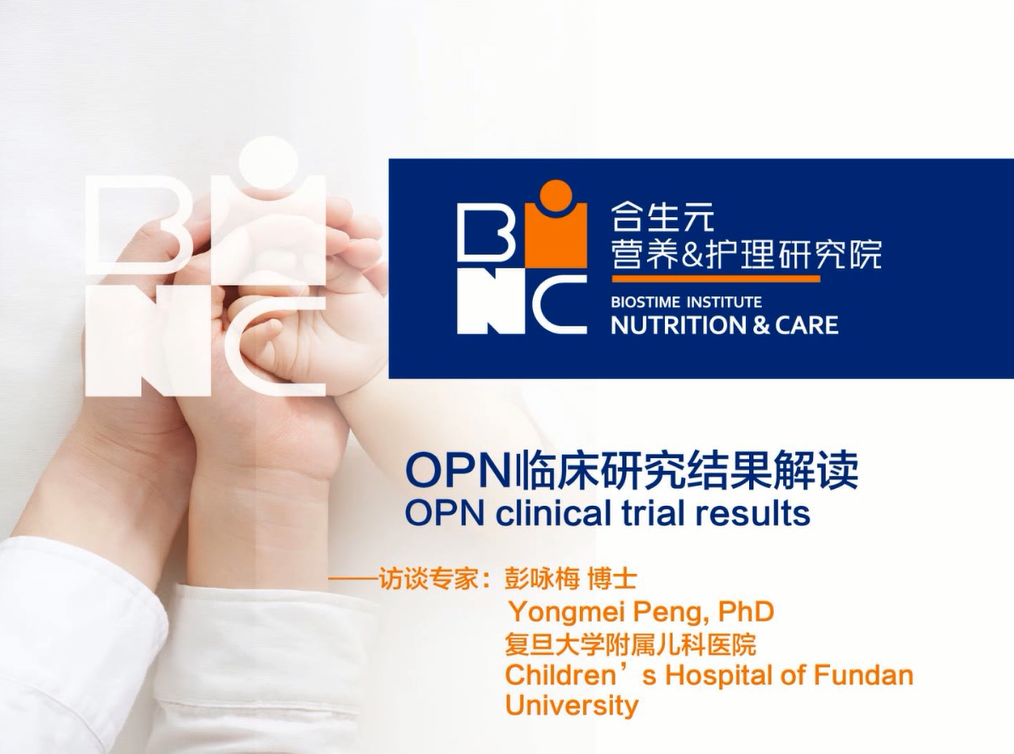In 2016, Li Ming and her team from microecology department in school of basic medicine of Dalian medical university apply the "BINC Maternal and Child Nutrition and Care Research Funding" successfully, which organized by Biostime Institution of Nutrition and Care (BINC). Joint project with BINC and other units to carry out a project study on the changes of lacto-oligosaccharide (HMO) in lactating and non-secretory mothers in Northeast China and the impact on the intestinal micro-ecology of offspring.
After more than two years, recently, the project team published their research on the famous journal of American Society of Microecology “mBio”. The topic is “Core Fucosylation of Maternal Milk N-Glycan Evokes B Cell Activation by Selectively Promoting the L-Fucose Metabolism of Gut Bifidobacterium spp. and Lactobacillus spp”. This study combines human sample analysis, animal experiments and in vitro experimental studies.The results suggest that the core fucosylated protein N-glycan in breast milk may promote the activation of neonatal B cells by altering the intestinal flora of infants and increasing the relative abundance of bifidobacteria and lactobacilli; Core fucosylation modification of human milk proteins plays an important role. The results provide theoretical basis and new research ideas for infant personalized nutrition.
Main Ideas:
1. The core-fucosylated N-glycans in milk of Chinese mothers selectively promoted the colonization of specific gut microbial groups, such as Bifidobacterium spp. and Lactobacillus spp. in their breast-fed infants during lactation.
2. Compared with Fut8/(WT) mouse-fed neonates, the offspring fed by Fut8/maternal mice had a distinct gut microbial profile, which was featured by a significant reduction of Lactobacillus spp., Bacteroides spp., and Bifidobacterium spp. and increased abundance of members of the Lachnospiraceae NK4A136 group and Akkermansia spp.
3. These offspring mice showed a lower proportion of splenic CD19+ CD69+[1]B lymphocytes and attenuated humoral immune responses upon ovalbumin (OVA) immunization.
4. The chemically synthesized core-fucosylated oligosaccharides possessed the ability to promote the growth of tested Bifidobacterium and Lactobacillus strains in minimal medium.
5. The resulting L-fucose metabolites, lactate and 1,2-propanediol, could promote the activation of B cells via the B cell receptor (BCR)-mediated signaling pathway.

Information of the original
Core Fucosylation of Maternal Milk N-Glycan Evokes B Cell Activation bySelectively Promoting the l-Fucose Metabolism of Gut Bifidobacteriumspp. and Lactobacillus spp. Li M, Bai Y, Zhou J, Huang W, Yan J, Tao J,Fan Q, Liu Y, Mei D, Yan Q, Yuan J, Malard P, Wang Z, Gu J, Tanigchi N,Li W. MBio. 2019 Apr 2;10(2). pii: e00128-19. doi: 10.1128/mBio.00128-19.
- BINC NEWS
-
INTERVIEW
-
-
15012020/06/30 00:00
-
78592016/05/20 13:53
-
78342016/05/20 15:48
-
- STUDY RESOURCES
-
-
108842019/01/01
-
88052019/02/28
-
81282018/10/31
-




